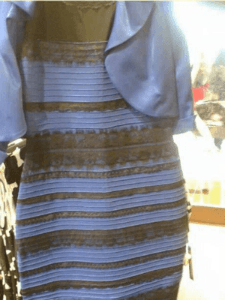Wherein I opine on the nature of mood shifts and the value of different states of mind.
I had major depression from about age 20 to 23. I was functional the whole time and so I’m never quite sure how serious it was. I simultaneously felt desperately miserable and completely dismissive of my own evaluation of my misery. I thought that I was somehow imagining being miserable; that real misery was too good for me somehow. Therapy and drugs made a big dent in whatever it was, though. I could tell because I recognized the self that emerged from the treatment as my old self.
Reflecting on different phases of my depression is difficult, because I find myself in a whole different frame of reference when my mood shifts. It’s hard to embody memories from radically different mood contexts. I still have the semantic content, but it doesn’t have the same emotional meaning. I’m still making sense of the whole experience, and how that relates to a different and more foreign phase: blithe happiness.
Blithe happiness is, unfortunately, for me a very selfish mood. I feel my own emotions more acutely, and they crowd out everyone else’s. My thoughts don’t stray to distant people and places the way they used to. I feel more selfishly invested in myself than I do when I am depressed. I’m afraid I’ll lose sight of the big picture that I saw when I felt like the one speck among billions instead of feeling like the star on a stage with billions of extras. Maybe there’s just more to lose than when I felt like a shadow of myself. Or maybe depressive thinking isn’t all wrong. I can’t help but feel that I grokked something deep and true during my depression, and I’m afraid that I’m losing the in-my-bones understanding that I had in a depressed state.
I’m trying to understand what my brain seems to think is desirable about this state.
When I realized I was depressed, it was like slowly coming to on another planet. I didn’t know that could happen, that you could just find yourself in another mental environment altogether. It’s not the emotions that changed– though that happened, too– it’s that you can’t remember anything else. The wallpaper of the mind is suddenly different and you realize you never noticed what was there before. It’s like color constancy. At first, nobody can believe that The Dress could look black and blue AND gold and white, but then they see it flip. Part of overcoming depression for me was learning the ins and outs of these illusions.

But at first it just seems like what was white is now blue, and gold is now black. I took what my brain was telling me at face value– the world, and I in particular, had become awful. Since then, I’ve realized that these context shifts happen all the time, and probably happened all the time before I learned to notice them. My mind just confabulated at any given moment that I had always felt whatever I felt then, which gives a false impression of continuity.
The feeling of alienation from my old self and from my body (dissociation) was one of the scarier parts of depression, but it’s also somewhat self-protective. One theory of dissociation/derealization is that it’s a defense mechanism against the intense negativity of depressed emotions. It’s like a psychological immune response that can get out of control and become part of the problem when you can’t zoom in anymore and focus on yourself. Seems a major part of my life will be learning to turn that focus dial. Or maybe just to accept the whole picture for what it is without being able to see everything clearly.
(12-12-18: I just realized calling The Dress “The Shift” would have been a brilliant pun!)
I enjoyed reading this very much. I have had depression and some mania all of my adult life and anytime I can learn something that helps me understand the condition or helps me to deal with it is a very goos thing. I never admitted to anyone that I had depression until recent years. I did not think that anyone would care or understand so it was easier to put on a mask and fake normalcy. I am glad you have made it acceptable to talk about it in our circle of family since so many of us struggle with it. much love aunt lillie
LikeLiked by 1 person
Thanks for elaborating! You touched on this in your latest podcast with Brian Tomasik and I was curious to know more! I’m fighting depression right now and I had similar ideas, though I couldn’t have put it as eloquently
LikeLiked by 1 person